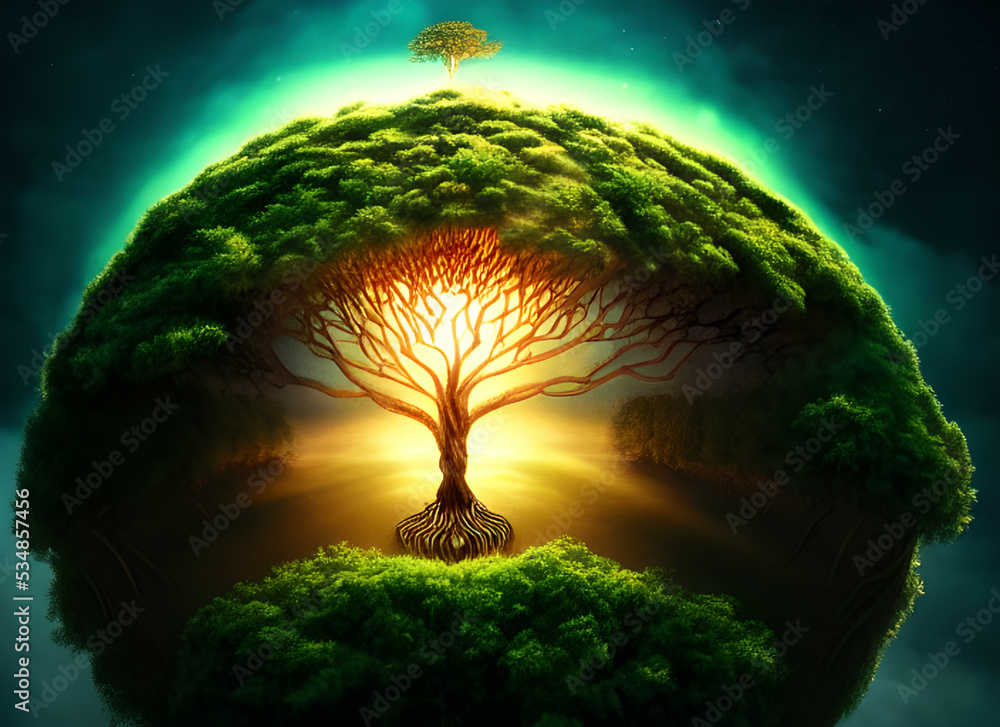Among the myriad of contemplations that have occupied human thought throughout the ages, the dual phenomena of life and death remain enigmatically intertwined. These two inexorable aspects of existence not only elicit profound emotional responses but also inspire philosophical inquiry and theological debate. The Bahá’í Faith offers unique perspectives on these matters, presenting a synthesis that encourages a harmonious understanding of life and the afterlife. This article delves into the Bahá’í teachings regarding life and death, exploring their implications and the mysteries that enfold them.
The Bahá’í teachings assert that life is a continuous journey, a divine gift imbued with purpose. This perspective fundamentally shifts the understanding of existence away from a mere biological phenomenon towards a multidimensional experience fraught with spiritual significance. Central to this view is the concept of the soul, which Bahá’ís regard as eternal and the essence of human identity. The soul transcends the physical realm, embarking on an unending journey of growth and development that persists after the cessation of physical existence.
In considering the nature of death, the Bahá’í writings articulate that it is not an end, but rather a transformative passage. Death is depicted as a transition into a new reality, where the soul continues to evolve and progress. This perspective alleviates the fear often associated with dying, heralding it instead as a gateway to greater realms of existence. The soul’s journey beyond the material world is characterized by its nearness to the divine, urging adherents to cultivate virtues and develop moral character in their earthly lives, which subsequently enhance their experience in the hereafter.
A salient observation within the Bahá’í framework is the interconnectedness of life and death. This interrelationship is vividly illustrated in the teachings, which propagate that earthly existence prepares souls for life beyond the physical. The trials and tribulations that individuals face during their lifetimes serve as crucibles for spiritual refinement. Through experiences of love, adversity, joy, and suffering, souls acquire the attributes necessary for advancement in the spiritual realm. This notion points to a divine economy where every earthly moment is laden with significance, underscoring the imperative to maximize every opportunity for personal and communal development.
Additionally, the approach to mortality encompasses not merely the individual soul’s fate but also the collective destiny of humanity. Bahá’í teachings espouse a vision of unity, wherein the lessons learned through life’s collective experience contribute to the uplifting of society. This interconnectedness suggests that the spiritual development of individuals is intrinsically related to the evolution of human consciousness as a whole. Such insight posits that the legacies left behind by individuals vis-à-vis their deeds, relationships, and contributions have lasting effects, resonating through time and aiding in humanity’s progression towards its ultimate purpose.
The Bahá’í texts explore the paradoxes of existence, contemplating the balance between materiality and spirituality. In addressing the mysteries of life and death, the writings emphasize the transient nature of physical life contrasted with the eternal endurance of the soul. This duality invites individuals to seek higher truths, rendering them less preoccupied with the ephemeral nature of worldly possessions and more engaged with their spiritual aspirations. Moreover, the absence of a singular, static doctrine about the afterlife encourages a spirit of inquiry and reflection among believers, fostering an atmosphere where personal revelations and understanding can flourish.
Equally significant in Bahá’í thought is the notion of divine justice. The teachings state that the circumstances of one’s earthly life—including challenges and tribulations—are purposeful and serve to test the soul’s resolve and capacity for growth. The understanding of justice extends beyond mere human perceptions, inviting adherents to trust in the divine wisdom that orchestrates the universe. Such conceptualization offers solace in the face of adversity and loss, encouraging individuals to maintain an unwavering faith that transcends the trials of existence.
The Bahá’í perspective further emphasizes the importance of community and support in dealing with the mysteries of life and death. Grief, while an inherently personal experience, is not meant to be navigated in isolation. The community is called upon to come together, supporting those who mourn, celebrating the life of the departed, and reinforcing the belief in the eternal nature of the soul. Rituals and remembrance serve as vital components in maintaining this communal fabric, salving wounds and providing a sense of continuity in the face of loss.
In conclusion, the Bahá’í teachings offer profound insights into the two greatest mysteries—life and death. By presenting a theological framework that views life as an opportunity for spiritual growth and death as an inevitable, yet transformative passage, these teachings encourage individuals to seek deeper understanding and connection with the divine. The intricate tapestry woven from these teachings illustrates the interdependence of human experiences and the eternal journey of the soul, inviting each person towards a more reflective, purposeful existence. As such, the Bahá’í perspective provides not only comfort but also a call to action—an encouragement to live a life rich in virtue, compassion, and unity, thus fostering the advancement of all humanity in the face of life’s ultimate mysteries.
